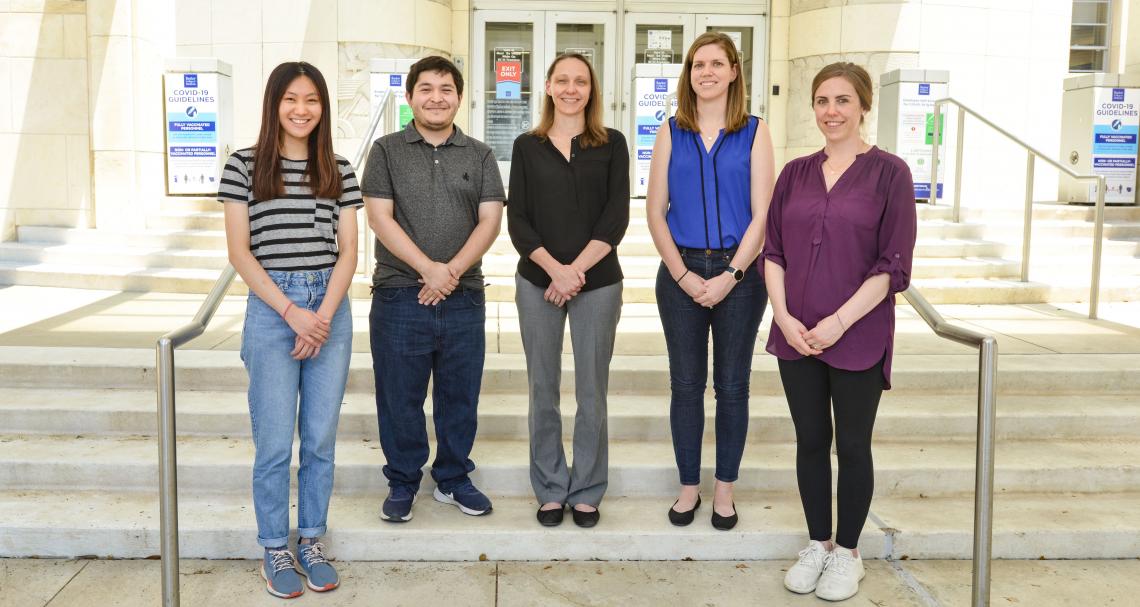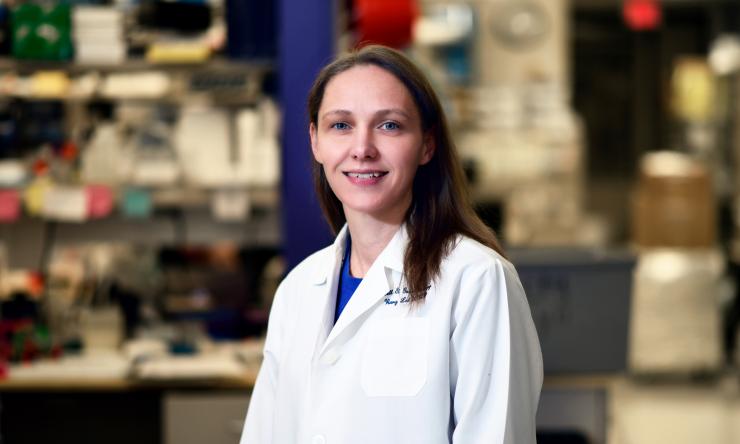Group photo of the Rachel Rau Lab members - 2021
About the Lab
Leukemias are cancers of the blood characterized by aberrant, immature blood cells that proliferate rapidly and resist normal cellular death. Although these diseases can be cured with conventional chemotherapy in many cases, relapses are common and the therapy itself is highly toxic causing morbidity and even toxic death in certain cases. The major focus of the Rau lab is to understand the molecular mechanisms that drive leukemogenesis and therapy resistance with the ultimate goal of translating these findings into better therapies for patients with leukemia.
A major driver of leukemia development and therapy resistance is epigenetic aberration. Epigenetics, broadly speaking, are the cellular processes that impact cell fate, lineage, growth and death by modification of gene expression rather than a change in the genetic code. Epigenetic regulation of gene expression is essential for the normal development of blood cells, but often these processes are exploited by leukemia cells to promote uncontrolled cell growth, resist cell death, and prevent normal differentiation. Using murine models, primary patient samples, and cell line models of leukemia, our lab aims to identify critical epigenetic factors that promote leukemia development then devise targeted approaches to therapeutically ‘re-program’ the malignant epigenetic code.
Current Projects
- Impact of loss of DNMT3A function in normal and malignant hematopoiesis
- Impact of cohesin deficiency on myeloid malignancy development
- Chemoresistance in IKZF1-deleted B lymphoblastic leukemia
Lab News
- Rau lab awarded Andrew McDonough B+ Foundation Childhood Cancer Research Grant to study the IKAROS-SAMHD1 axis in KMT2A-rearranged B-ALL (Jan 1, 2022).
- Shannon Conneely received a research award from Tri-Delta Sorority.
- Kristen Kurtz was awarded a CPRIT Training Grant.
- Rohit Gupta was awarded the national AOA Carolyn L. Kuckein Research Fellowship Award.
- Shannon Conneely’s abstract selected for plenary presentation at the 2021 American Society of Pediatric Hematology/Oncology Research Conference.
- Shannon Conneely received prestigious St. Baldrick’s Fellowship Award.
Primary Investigator
View Dr. Rachel Rau's bio for details on her interests in leukemia cancers and development of therapies for patients with leukemia.
Publications
Our research projects and studies result in peer-reviewed publications in scientific journals.












